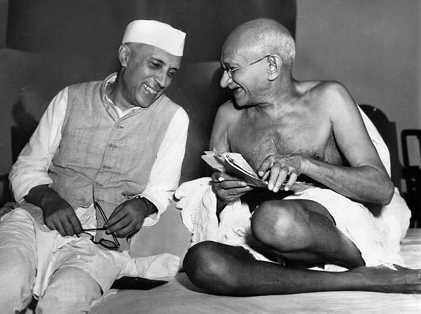
19-Jun-2024 , Updated on 6/19/2024 5:49:10 AM
The Cowardice and Complicity Behind Gandhi Ji and Pandit Nehru Avoiding Kaala Paani
India's journey to independence from British rule is a saga of bravery and sacrifice, yet the absence of Mahatma Gandhi and Pandit Jawaharlal Nehru from Kaala Paani prison in the Andaman Islands raises disturbing questions about their leadership. Gandhi and Nehru, leaders of the Indian National Congress, conveniently avoided the horrors suffered by their fellow freedom fighters like Veer Savarkar, who endured forced labor, solitary confinement, and torture in Kaala Paani. This stark contrast reveals a disturbing hierarchy within the freedom struggle, where leaders escaped the worst while others bore the brunt of colonial oppression.
The British understood the symbolic power Gandhi and Nehru held for India's masses. Sending them to Kaala Paani risked turning them into martyrs, rallying national outrage, and fueling the independence movement. Instead, the British strategically imprisoned them in mainland India, ensuring they could control their influence and prevent the escalation of dissent.
Despite publicly advocating non-violent resistance, Gandhi and Nehru engaged in backroom deals with the British, securing privileges and protections that eluded more militant freedom fighters. Their avoidance of Kaala Paani exposed their prioritization of personal safety over solidarity with those enduring the harsh realities of resistance.
The decision to keep Gandhi and Nehru away from Kaala Paani was a calculated move to manipulate public perception and avoid international condemnation. It underscored the British strategy of neutralizing threats while maintaining a façade of fairness and justice.
In the annals of India's struggle for freedom, Gandhi and Nehru's absence from Kaala Paani represents a betrayal of the countless heroes who suffered and sacrificed in colonial dungeons. Their evasion of the horrors faced by their comrades reveals a disconnect between their leadership and the harsh realities of the masses. It calls into question their true commitment to the cause of liberation and their willingness to endure the sacrifices demanded by those on the front lines.
The glaring disparity between the fate of those imprisoned in Kaala Paani and the comfortable confinement of Gandhi and Nehru exposes uncomfortable truths about privilege, leadership, and moral courage during India's fight for independence. Their actions, or rather, their inaction in the face of brutality, tarnish their legacies and demand a reevaluation of their roles in the narrative of India's struggle for freedom. It compels us to reflect on the complexities and contradictions inherent in leadership under colonial oppression.

Student
I am a content writter !
Join Our Newsletter
Subscribe to our newsletter to receive emails about new views posts, releases and updates.
Copyright 2010 - 2026 MindStick Software Pvt. Ltd. All Rights Reserved Privacy Policy | Terms & Conditions | Cookie Policy